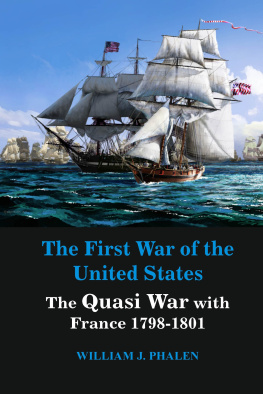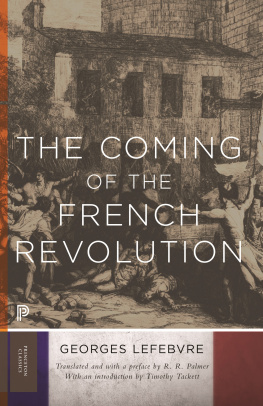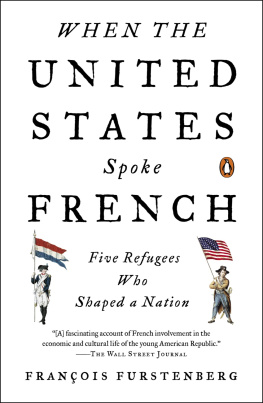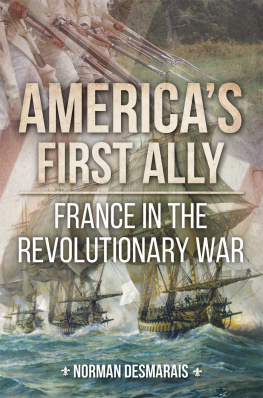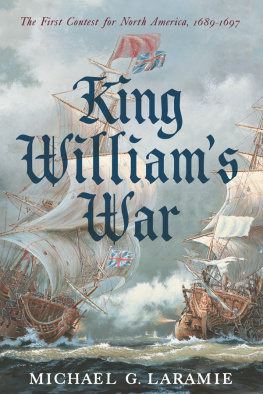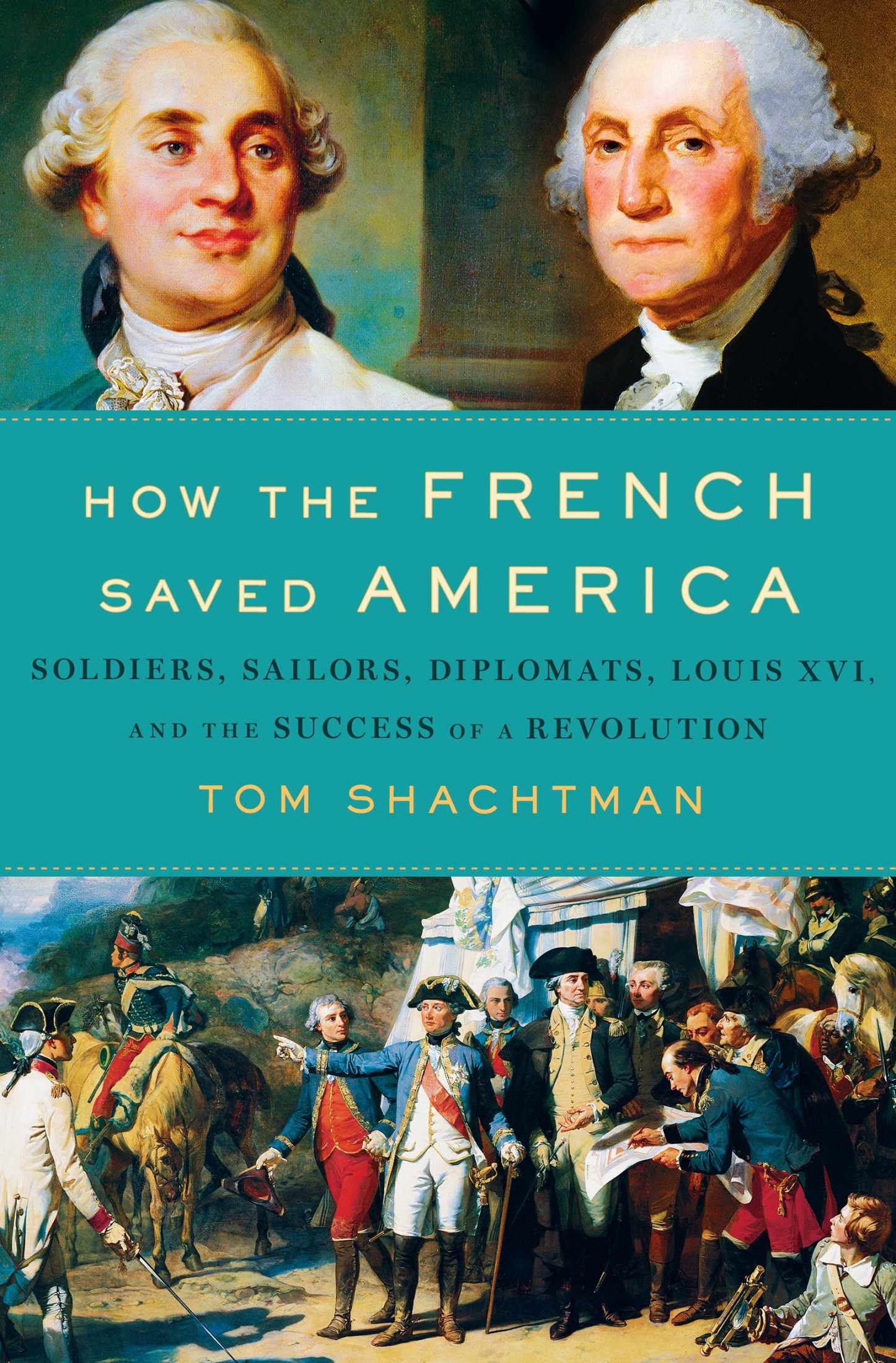Contents
Guide
Pagebreaks of the print version

The author and publisher have provided this e-book to you for your personal use only. You may not make this e-book publicly available in any way. Copyright infringement is against the law. If you believe the copy of this e-book you are reading infringes on the authors copyright, please notify the publisher at: us.macmillanusa.com/piracy.
For Harriet, who helped me through.
In Memoriam
John L. Tishman, 1926 2016
Donald Oresman, 1925 2016
Achard De Bonvouloir
DECEMBER 1828, 1775
On December 18, 1775, as the winter solstice approached, darkness arrived early to Philadelphia, capital of the British colony of Pennsylvania, giving cover to the men individually making their ways through the streets to Carpenters Hall for a rendezvous with a visitor from France touted as bearing an important message for Americans.
Their encounter would take place at a moment of high military and political peril for America. Nine months earlier, hostilities had begun at Lexington and Concord, and since the summer the struggle between the British and Continental troops had become a standoff at Boston. The Continental army was so bereft of cannons, ammunition, and gunpowder that General George Washington was unable to lay a proper siege or launch assaults on British positions. Our want of powder is inconceivable, Washington wrote that week in December. A daily waste and no supply administers a gloomy prospect. Washington had sent Colonel Henry Knox to the recently seized former British stronghold of Fort Ticonderoga in upper New York to haul their cannons overland to Boston in order that their eventual presence on the heights above the city might force the British to abandon the metropolis. But at years end, well before those cannons could possibly arrive in Boston, the enlistment periods of many Continental soldiers would end, and Washington worried that soldiers would then just go home, leaving him too shorthanded to continue the fight.
There was equal political peril, for sentiment in the Second Continental Congress was seriously divided over whether to declare independence. The First Continental Congress, convened in 1774, had avoided any attempt to do so, and in July 1775 the Second had issued the so-called Olive Branch Petition, a plea to King George III to calm the fraternal conflict and find a way to allow the colonies to remain within the Empire. That petition had been answered on August 23, 1775, by A Proclamation for Suppressing Rebellion and Sedition, in which the king declared the colonies to be in open rebellion and their leaders to be Traitors, and which was followed by an order to close American ports to any would-be suppliers of the rebels. In the fall Congress had sent a second conciliatory petition to the king. By late December 1775 it had received no response, and Congress feared that George IIIs next message to Parliament would specifically reject it.
Tendrils from the past and imaginings of the future are integral to all clandestine assignations. While Congress awaited the kings likely rejection of their pacific overtures, it had established a Committee of Correspondence to explore with Americans abroad and friends in other parts of the world the possibilities of foreign assistance to the rebelling colonies. Immediately after the committees chartering, its members had renamed it the Committee of Secret Correspondence and closed its records to other congressmen. They did so to protect the overseas agents whom the committee might employ, and to conceal those agents identities from that fraction of the delegates who continued to resist declaring independence. For the same reason the committee was being very circumspect about this evenings clandestine meeting, convened at their behest.
The walkers destination was the headquarters of the Library Company, a subscription club founded by Benjamin Franklin and friends in 1731 and moved to Carpenters Hall in 1773. Franklin, a member of the Committee of Secret Correspondence, was one of the walkers; the most famous American in the world, now sixty-nine and in poor health, he had returned home after fifteen years in London, where he represented the interests of Pennsylvania and Massachusetts. He and the other walkers had arranged for each to arrive at the assignation at slightly different times and by roundabout routes. Their purpose was to avoid alerting the suspicions of the citys British and Tory spies, who might judge treasonous the walkers participation in the business of this meeting: assessing a potential connection between France and the American colonies that were on the verge of severing their existing connection with Great Britain.
Like Congress as a whole, the Committee of Secret Correspondence was a mix of radicals, centrists, and conservatives; none of the members qualified as a die-hard Loyalist to the Crown, for King George had already branded all those in Congress as traitors for daring to meet without his permission. Franklin, although the oldest of the committee members, was perhaps the most independence-minded; the relative moderate was John Dickinson, the author of the popular Letters from a Farmer in Pennsylvania , which argued that forcible resistance to British tyranny was justifiable, but also the author of that Olive Branch Petition to George III. The members also included a rockbound conservativethe ascetic, patrician New York lawyer John Jay, thirty, who was being dragged by events from favoring reconciliation to accepting the need for rebellion.
An inherent difficulty for Americans in seeking a foreign liaison was that they were reluctant suitors. Raised from childhood to be self-reliant, they were also distrustful of even tangential involvement with the shifting alignments and resulting perfidies of the European balance-of-powers system, which over the past century had amply demonstrated its inability to produce peace for more than a dozen years at a time. Congress had concluded only very recently, and with some distaste, that to further resist British subjugation they must seek arms, powder, ammunition, and funds from abroad. Still, few congressmen of any stripe, even the most radical, desired an outright alliance with any foreign nation.
Nor did the European powers have much interest in alliance with the rebelling British colonies, despite a correspondent having told Franklin that toute lEurope nous souhaite le plus heureux succs pour le maintien de nos liberts (all Europe wishes you the happiest success in the maintaining of your liberties). It was becoming increasingly clear to the committee, as well as to most of the other congressional delegates and knowledgeable observers, that as the magazine editor Tom Paine was writing, just then, While we [continue to] profess ourselves the subjects of Britain, we must, in the eyes of foreign nations, be considered as rebels. In a room just a few blocks from Carpenters Hall, Paine was putting the finishing touches on his pamphlet, Common Sense . Under our present denomination of British subjects we can neither be received nor heard abroad until, by an independence, we take rank with other nations.
Even France and Spain, the countries whose wealth and power were the closest to Great Britains, worried about reprisals should they openly ally with George IIIs rebellious subjects. Given the dominance of the Royal Navy their fear was reasonable, and was made more palpable by France and Spains knowing the relative weakness of their own land forces, which had deteriorated since the end of the Seven Years War.


